How to Choose the Best Web Framework for Your Project
How to Choose the Best Web Framework for Your Project

Introduction
Selecting the right web framework for your project is a critical decision that can significantly impact the success of your development efforts. With a multitude of options available, each with its strengths and weaknesses, making the best choice can be challenging. In this guide, we will provide you with a structured approach to help you choose the best web framework for your specific project needs.

1. Define Your Project Goals and Requirements
Begin by clearly defining the goals and requirements of your project. Consider factors such as:
- Project complexity
- Required features and functionalities
- Scalability requirements
- Development team expertise
- Project budget and timeline
- Long-term maintenance and support
Having a well-defined project scope will help you narrow down your framework options.
2. Choose a Programming Language
Selecting a programming language is often the first step in choosing a web framework. Some popular languages and their associated web frameworks include:
- Python: Django and Flask
- JavaScript: React, Angular, and Vue.js
- Ruby: Ruby on Rails
- Java: Spring Boot
- PHP: Laravel and Symfony
Consider your team’s familiarity with the language, as well as the language’s ecosystem and community support.
3. Evaluate Framework Types
Web frameworks come in various types, each designed for specific purposes:
- Full-stack frameworks: These provide a comprehensive solution for both front-end and back-end development. They are ideal for projects where you want to maintain a consistent technology stack.
- Front-end frameworks: These focus on building the user interface and interactions. They can be combined with various back-end technologies.
- Back-end frameworks: Designed for server-side logic, these frameworks can be used with a separate front-end framework or library.
Choose a framework type that aligns with your project’s requirements and team expertise.
4. Assess Community and Ecosystem
A strong community and ecosystem are essential for a web framework’s success. Consider factors such as:
- Community support and active development
- Availability of plugins, libraries, and extensions
- Access to documentation and tutorials
- Online forums and community engagement
A vibrant community ensures you have resources and support as your project evolves.
5. Examine Performance and Scalability
Evaluate the framework’s performance and scalability capabilities. Consider:
- Load handling capabilities
- Caching mechanisms
- Database integration
- Scaling options (horizontal and vertical)
For projects expecting high traffic or future growth, a framework that can scale efficiently is crucial.
6. Security and Maintenance
Security is paramount for web applications. Look for frameworks with built-in security features, such as protection against common web vulnerabilities (e.g., XSS, CSRF). Additionally, consider the framework’s maintenance history and update frequency.
7. Review Case Studies and Success Stories
Research case studies and success stories of projects that have used the framework you are considering. Learn from others’ experiences and see if the framework has been successful in similar use cases.
8. Experiment with Prototypes
Create prototypes or small proof-of-concept projects using the shortlisted frameworks. This hands-on experience can provide valuable insights into each framework’s ease of use, development speed, and suitability for your project.
9. Consider Long-Term Viability
Think about the long-term viability of the framework. Is it actively maintained? Does it have a roadmap for future development? Will it continue to meet your project’s needs in the coming years?
10. Seek Expert Advice
If you are unsure about your choice, consult with experienced developers or hire a technical consultant. Their expertise can help you make an informed decision.
Conclusion
Choosing the best web framework for your project is a crucial step in its success. By following this structured approach, you can evaluate your options systematically and select a framework that aligns with your project’s goals, requirements, and long-term vision. Keep in mind that the “best” framework may vary from project to project, so be prepared to adapt your choice to the specific needs of your development endeavor.


